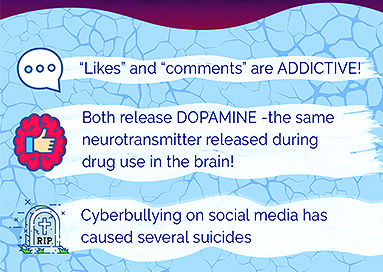
How to Hold a Low-Cost Funeral
May 11, 2020
How Is Social Media Affecting Our Mental Health?
March 25, 2021Economic pitfalls are bound to happen from time to time. From minor contractions to considerable recessions, all the way to outright deep economic depression, it’s the nature of the financial world.
In the history of the US, instances of economic upheaval have changed the way we live — and the way we die. It’s no secret that suicide rates jump during periods of economic instability. It happened during The Great Depression, and sources claim it has happened again in response to COVID-19.
Here, we’ll look at the historical reasons for economic contractions; there are many. Then, we’ll explore the negative impacts — like substance abuse, child abuse and suicides — and consider potential remedies to ease the situation.
But before we get any further, let’s make sure you have access to important phone numbers related to suicide prevention during a depression, as well as suicide cleanup services.
If you’ve stumbled onto this article because you’re considering harming yourself, know that you’re not alone. Help is always a phone call away.
Suicide Resources and Suicide Cleanup
The National Suicide Prevention Lifeline is available 24 hours a day. Their number is 800-273-8255, or you can simply dial 988.
- At Suicide Cleanup, we handle all types of biohazard cleanups nationwide.
- If you need professional cleanup services, you can contact us online, or call 1-844-255-2462.
- Phones are staffed 24 hours a day.
Now, on to an understanding of suicide rates and economic depression in the US. The journey begins with a fundamental understanding of modern economics.
Economics Basics
Let’s remember that currency is conceptual. We can’t eat or drink cash directly. It’s a representation of a value. And that value changes all the time.
As human civilization moved beyond the barter system for trade, we developed recognized forms of currency. While The Gold Standard has come and gone, and modern cryptocurrencies like Bitcoin rear their heads today, currency valuations are a matter of convenience. As a global society, we largely agree that a US dollar is worth X, a Euro is worth Y and so on.
These valuations change continually, though usually in tiny increments. All is well until some earth-shaking revelation occurs. Or a crisis, whether real or perceived.
While our most recent economic instability has been caused by public uncertainty surrounding a pandemic, other situations can cause major upheavals in the US economy too, like:
- Elections
- Legislative changes
- War, or the threat of war
- Sudden, unexpected windfalls in the national economy — like the Gold Rush
We should also point out that we’re discussing economics on a national scale here, but the US has a history of experiencing localized regional depressions too. Consider the slow economic rebuild in Louisiana after Hurricane Katrina, for example.
The point we’re making is that the value of a US dollar is always subject to change, and its value is relative to your location.
But to plan for the future, provide the best lives for our children, and hopefully live our golden years in comfort, we try to save and invest. We need money put away for lean times, and we dream of fancy cars or retirement travel.
It’s when those economic dreams get crushed that suicide rates skyrocket.
Now that we’ve considered all the reasons an economy can flounder, and why that’s so upsetting, we can’t go much further without addressing the gorilla in the room — COVID-19. So let’s not mince words.
COVID-19, the Economy, and Suicide Rates
The final, true numbers and statistics may never be known, and it’s difficult to pinpoint precisely which suicides are caused strictly by the pandemic.
We think the American Psychological Association (APA) says it best:
COVID-19 has brought a raft of intense new stressors while removing many of the resources people have traditionally used to cope with stress.”
Millions of folks have lost jobs. Some have lost their small businesses and homes. Stressed families are cooped up together for weeks on end, without any respite or recreation. And all of these factors can lead to mental and emotional upset.
Next, we’ll look directly at suicide rates in the US, in response to COVID-19 and the economic instability of 2020. We’ll look closely at statistics, and pose some possible remedies to the suicide crisis in the US today.
Does the Economy Affect Death & Suicide Rates?
As the nation is still coming to grips with the COVID-19 pandemic, we don’t have access to all of the complete data yet. So much of what we write here is ultimately speculation and supposition.
What we do know is that suicide rates have increased. Furthermore, whenever the US is wading through an incredibly difficult period economically speaking, death and suicide rates always rise.
At Suicide Cleanup, we stand on the front lines. As death and blood cleanup professionals, we can see in our own work that suicides are indeed on the rise. This is especially true for rural counties struggling with high poverty numbers.
Again this is on par to similar experiences, such as when suicide rates in the US and Europe rose throughout the “Great Depression.”
We also recognize patterns of locality. Areas hardest hit by the virus — our home state of NY, for instance — may naturally see a higher peak in numbers. But can this increase be attributed entirely to COVID-19 and the US economy?
Current Suicide Statistics in the US
We know that suicide doesn’t usually stem from a single cause.
It’s more like a build-up of emotional and mental depression until finally, there is one “last straw.”
- Therefore, educated audiences should exercise critical thinking skills when hearing grand claims such as “suicides are up 300% due to COVID.”
Also, we know that instances of suicide in the US have been growing over the past decade. According to the American Foundation for Suicide Prevention (AFSP):
- In 2018 there were 1.4 million suicide attempts in the US.
- 48,344 Americans died of suicide in 2018.
- Making suicide the 10th leading cause of death in the US, in 2018.
- The overall increase of US total deaths from suicide went from about 10% to about 14%.
Depending on how we consider it, that can be a small but significant 4% increase among all deaths, or a more meaningful and tragic 40% increase in cases of successful suicide overall.
Enter the Novel Coronavirus, and it seems like suicide rates are likely on the rise in the US and around the globe due to the pandemic. We’ve heard of several heart-wrenching cases believed to be linked to COVID-19.
High-profile instances include a state finance minister in Germany, Thomas Schafer, who despaired over the virus’s economic impact in March 2020.
And here at home, a Manhattan emergency room physician Lorna Breen, who fought on the front line by treating patients, in April.
But regardless of the reasons — whether a suicide was caused by economic hardship, fears of disease, alcoholism, or longstanding mental illness — each case is an unmitigated tragedy.
Suicide Prevention in 2020
National Suicide Prevention and Awareness Month is just around the corner in September. Businesses, organizations and families can use this as an opportunity to help prevent suicide.
- #BeThe1To is the National Suicide Prevention Lifeline’s message for National Suicide Prevention Month.
- The goal is to spread the word about actions we can take to prevent suicide attempts among our friends and families.
In the meantime, know that nothing works as well for preventing suicide attempts as compassionate communication.
Whether you make yourself available through social media, a phone call, or a face-to-face visit, communication is the key to preventing these tragedies.
We hope you’ve enjoyed our digest of the US economy, and how depressions and recessions do cause more deaths within the country.
Each time of economic hardship and recessions can become an opportunity for increased mental health awareness and suicide prevention.
If you’d like to know more about our professional cleanup services: suicide cleanup, blood cleanup, crime scene cleanup, and biohazard vehicle cleanup, contact us today.




